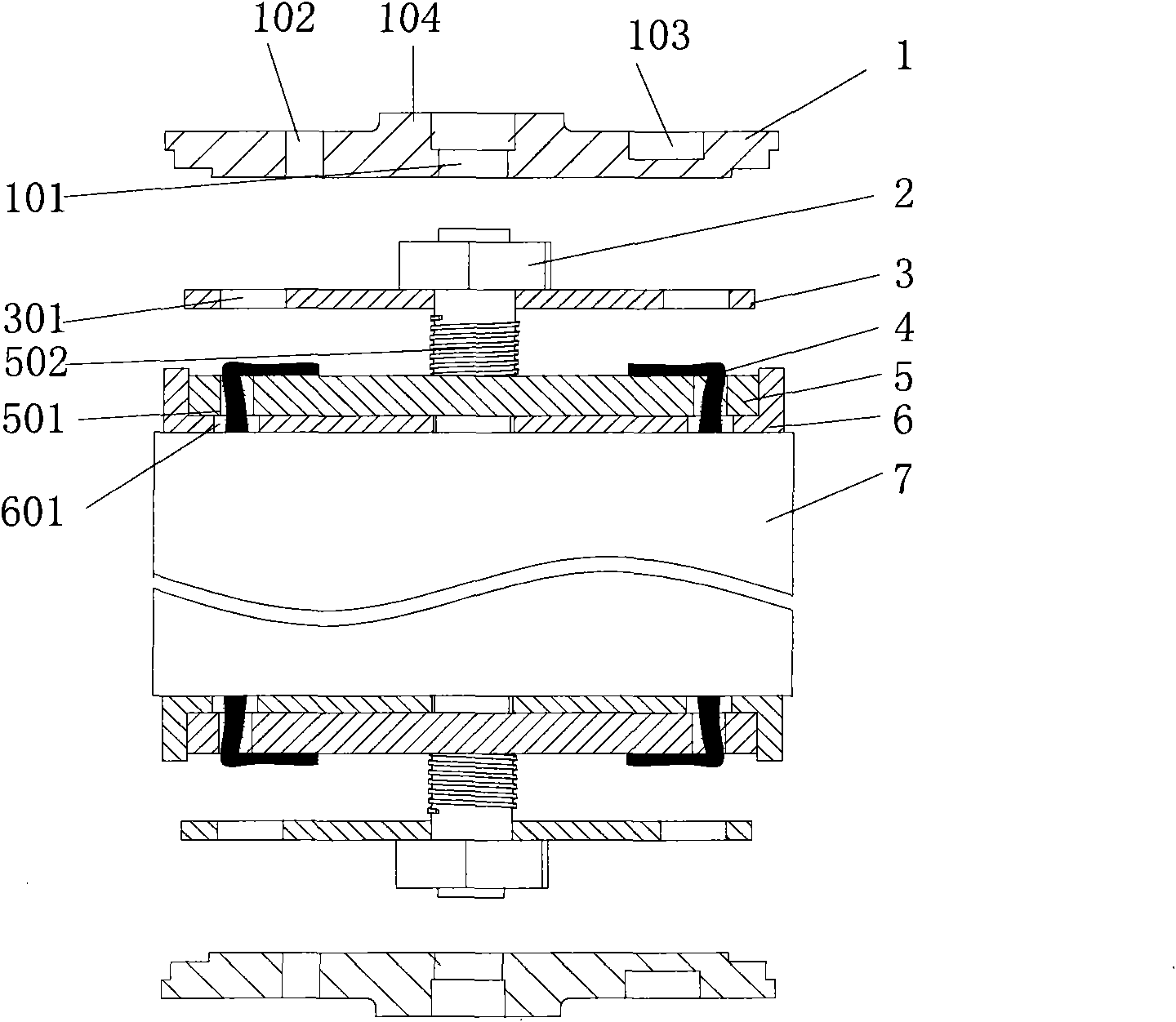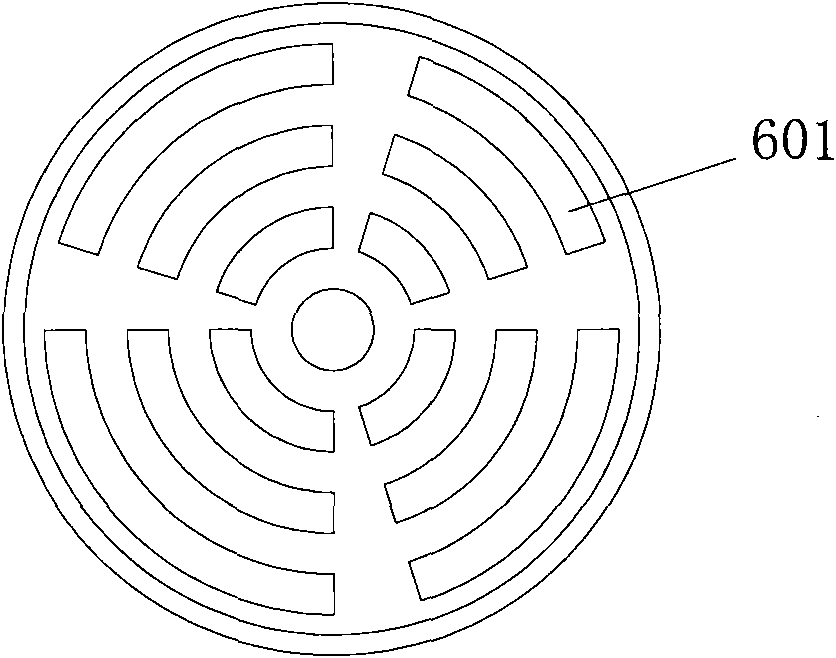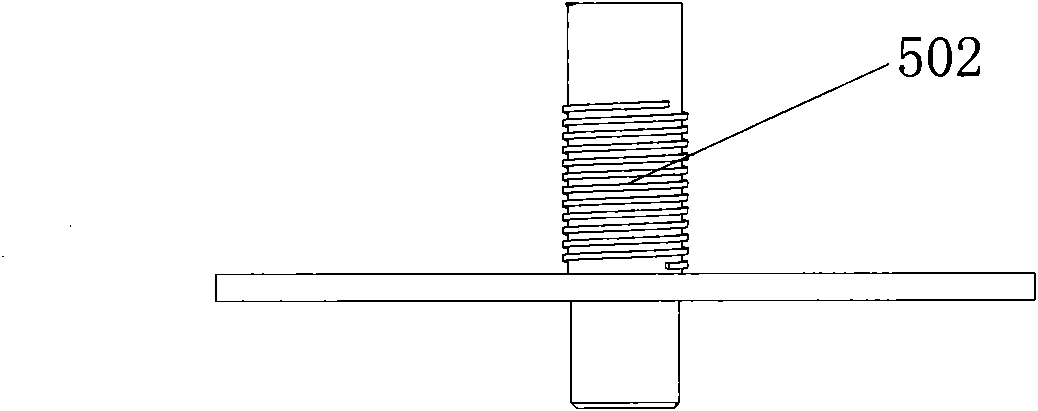Method for assembling lugs and cover plate of battery
A technology of battery tabs and assembly method, applied in secondary batteries, battery pack components, circuits, etc., can solve problems such as affecting battery safety and cycle life, inability to precisely control welding positions, unfavorable processes, and quality control, etc. To achieve the effect of easy flow operation, reliable and firm connection point of the pole ear, and guaranteed performance
- Summary
- Abstract
- Description
- Claims
- Application Information
AI Technical Summary
Problems solved by technology
Method used
Image
Examples
Embodiment 1
[0031] A secondary battery such as figure 1 As shown, it includes a cover plate 1 , a connector, a tab lead-out device, a second gasket 3 , and a winding core 7 . The tab lead-out device includes an insulating gasket 6 and a first gasket 5, wherein the insulating gasket 6 forms an insulating layer, and the first gasket 5 forms a conductive layer. The connecting piece includes a nut 2 and a screw 502 fixed on the first washer. The battery plate is wound into a cylindrical core 7, and there are multiple tabs 4 protruding from the core 7 at both ends. The tabs at one end are positive tabs, and the other ends are negative tabs. The connecting structure of the cover plate is the same.
[0032] The insulating spacer 6 is circular and is placed on the end face of the winding core 7. The structure of the insulating spacer 6 is as follows: figure 2 As shown, a hole 601 is opened thereon, and the hole 601 is a discontinuous sector. A first gasket 5 is stacked above the insulating g...
Embodiment 2
[0038] A secondary battery, including a cover plate, a connector, a tab lead-out device, a second gasket, and a winding core, the difference from Example 2 is that the tab lead-out device is a composite of an insulating layer and a conductive layer Structure. Such as Figure 7 As shown, the tab lead-out device is divided into upper and lower layers, the upper layer is a conductive layer, and the lower layer is an insulating layer, and the tab passes through the hole on the tab lead-out device from below the insulating layer and is welded above the conductive layer.
Embodiment 3
[0040] A secondary battery, including a cover plate, a connector, a tab lead-out device, a second gasket, and a winding core. The difference between it and Embodiment 2 is that there is no hole on the tab lead-out device, such as Figure 8 As shown, the tab protrudes from the edge of the tab lead-out device from below the insulating layer and is welded above the conductive layer.
PUM
 Login to View More
Login to View More Abstract
Description
Claims
Application Information
 Login to View More
Login to View More - R&D
- Intellectual Property
- Life Sciences
- Materials
- Tech Scout
- Unparalleled Data Quality
- Higher Quality Content
- 60% Fewer Hallucinations
Browse by: Latest US Patents, China's latest patents, Technical Efficacy Thesaurus, Application Domain, Technology Topic, Popular Technical Reports.
© 2025 PatSnap. All rights reserved.Legal|Privacy policy|Modern Slavery Act Transparency Statement|Sitemap|About US| Contact US: help@patsnap.com



